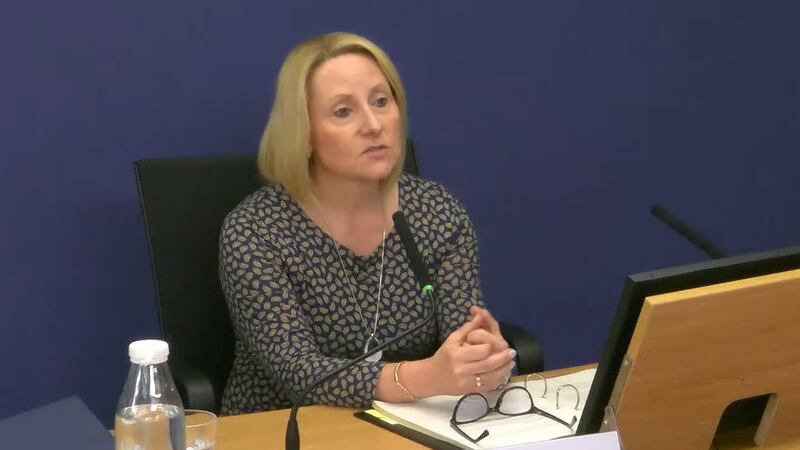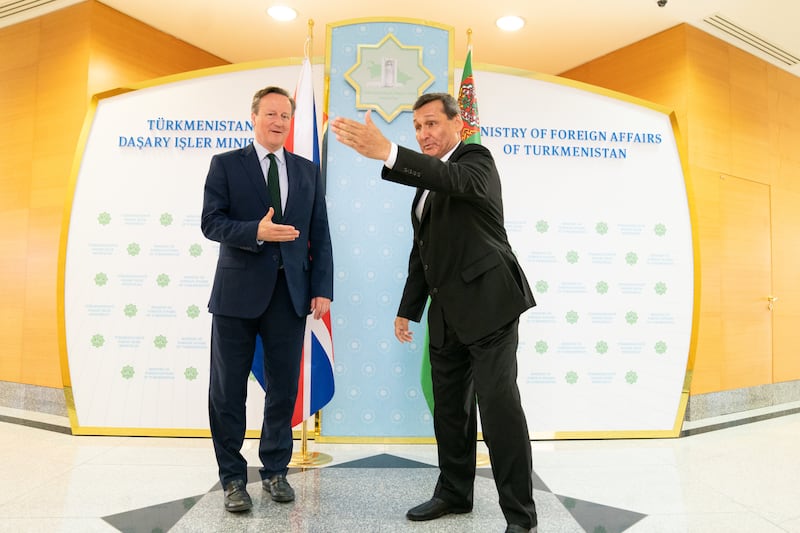All leaders of the EU 27 are in agreement that Brexit talks will not proceed to phase two unless the UK offers further assurances on the Irish border, Ireland's foreign minister has said.
Simon Coveney said the Republic of Ireland will not need to use its veto to prevent negotiations moving to the issue of future trading relations because EU negotiators will themselves block the move if the UK does not offer up a workable solution ahead of December's crunch summit in Brussels.
Mr Coveney said he received personal assurances from senior EU figures Michel Barnier, Donald Tusk and Jean Claude Juncker on Friday that the EU would hold firm on this demand.
"They have repeated the message that Ireland's problems are the EU's problem, so Ireland is not going to be isolated and forced to use a veto," said Mr Coveney.
"We are part of an EU negotiating team that is very clear on this issue - there needs to be more progress on the Irish issues between now and the 14th of December and if that doesn't happen we won't be moving on to the phase two discussions, which is where everybody wants to be, including Ireland."
In an interview on RTE radio, he added: "We can't allow a situation to develop where we move into phase two of discussions on Brexit in the hope that somehow the border is going to be resolved without having any credible understanding as to how that's going to be done."
The issue of how to maintain the a "soft" border between Northern Ireland and the Republic of Ireland is a key stumbling block in Brexit negotiations, and British Prime Minister Theresa May has just a week to meet a European deadline to make progress before trade talks can begin.
EU leaders insist that a hardening of the border is inevitable if the UK leaves the single market and customs union, as checks will be required to monitor movement between jurisdictions operating under two different regulatory systems.
One solution offered by Europe is the suggestion Northern Ireland would continue to comply with EU regulations post-Brexit. The British government has rejected such a concept as a non-runner.
Any arrangement which appeared to give Northern Ireland a separate status would also be strongly resisted by the Democratic Unionists, whose 10 MPs are effectively keeping Mrs May in Downing Street after she lost her majority in the general election.
Mrs May has been given until December 4 to come up with further proposals on issues including the border, the Brexit divorce bill and citizens' rights.
Moving on to phase two of the negotiations, on trade, can only happen if all 27 leaders of the remaining EU countries agree at the European Council summit on December 14-15 that "sufficient progress" has been made on the first set of issues.
On Sunday, International Trade Secretary Dr Liam Fox insisted the border issue could only be sorted in phase two of negotiations, as the shape of the future trading relationship was a key factor.
"We don't want there to be a hard border, but the UK is going to be leaving the customs union and the single market," he said.
He added on Sky News's Sunday with Niall Paterson: "We can't come to a final answer to the Irish question until we get an idea of the end state."
Mr Coveney agreed that the "full picture" would only become clear in phase two, but he said much more work was needed in phase one.
"If you basically move from one customs union into another customs union when you move from Ireland into Northern Ireland then there has to be customs checks, there is no way of avoiding that," he said.
Former taoiseach Bertie Ahern has suggested the only solution is to introduce technology to manage multinational trade while turning a blind eye to lower-level cross-frontier movement.
That is essentially the proposal forwarded by the UK in its position paper on the border earlier this year.
Mr Ahern told BBC Radio 4's Today programme: "Theresa May, take her at her word, she's confidently said she doesn't want a physical border, the EU don't want a physical border, the Irish Government don't.
"So you're left down with the one alternative - to make technology work in most cases and to throw a blind eye to those areas that can't come in within technology."
The European Parliament's Brexit co-ordinator Guy Verhofstadt suggested that more work also needs to be done on the issue of the post-Brexit rights of EU citizens living in the UK and Britons living on the continent.
In a message on Twitter, Mr Verhofstadt said: "The European Parliament still has a number of outstanding concerns over citizens' rights, which I hope can still be solved in the coming weeks.
"Brexiteers promised that people would be able to continue their lives as before - now it's time to deliver."
Asked about the prospect of movement on the border issue, Mrs May's official spokesman said: "I would point you to the words from David Davis at the end of the last set of negotiations with Michel Barnier, where he was clear we remain firmly committed to avoiding any physical infrastructure.
"We've had discussions about that with the EU and these discussions will continue in the run-up to the December council.
"But the Secretary of State was also clear that we will only be able to conclude them finally in the context of the future relationship."
He said: "In order to be able to see what the solution is going to finally look like, we need to understand what the future trading relationship is going to be, because the two things are obviously related. We want to get on to talking about trade as soon as possible."
Asked about Mr Coveney's remarks, the spokesman said: "As the prime minister said on Friday after meeting Donald Tusk, we are making good progress. There's more work to be done in a number of areas and the talks continue to take place."
The PM's spokesman gave short shrift to suggestions that the problem could be resolved by allowing Northern Ireland to continue to observe the rules of the customs union, saying: "This has been raised numerous times and we've been clear that the United Kingdom as a whole is leaving the single market and is leaving the customs union."
He added: "We have reached agreement on continuing free movement of people over the border and we are focusing on finding a solution in relation to goods."








